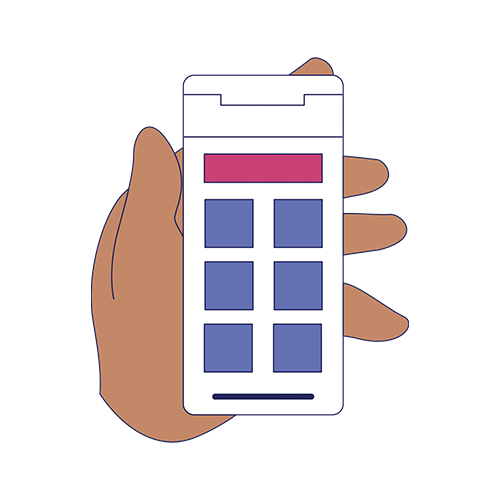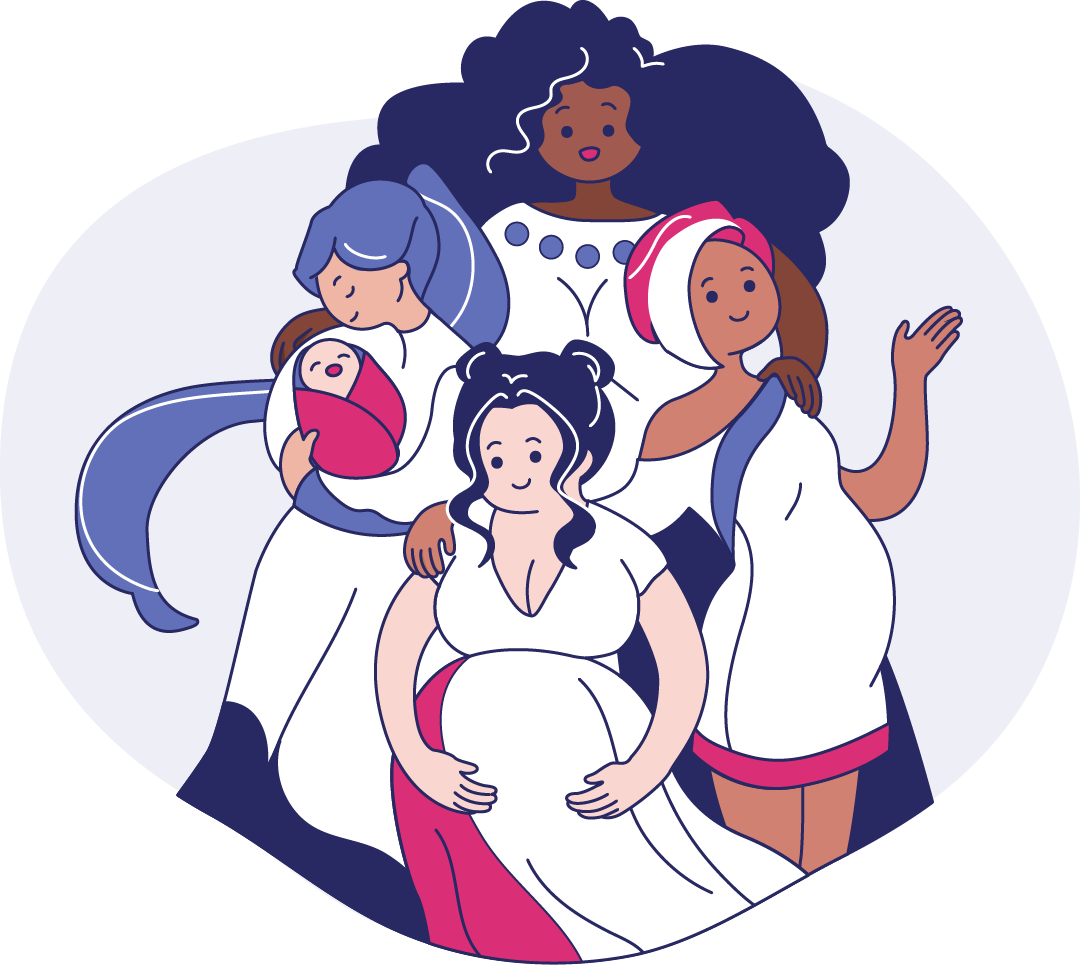Medicaid &
Maternity Care
Medicaid is the largest single payer of pregnancy-related services. Medicaid covers a greater share of births in rural areas, among minority women, young women (under age 19), and women with lower levels of educational attainment.
Quick Facts About
Medicaid & Pregnancy
Updated for 2024
Maternal Digital Health Landscape: Medicaid
Download the white paper exploring challenges & solutions for under-resourced maternity populations.
Spotlight on
Barriers of Access
Medicaid enrollees are less likely to receive prenatal care in the first trimester of pregnancy and adequate prenatal care overall than those who are privately insured.
Contrary to popular expectation, disparities among the Medicaid population do not extend to technology.
Medicaid enrollees use technology at only slightly lower rates than adults with exchange coverage, and express equal interest in using technology for their health. Digital health is a viable option for supporting Medicaid enrollees.
Medicaid |
Private Insurance |
|
|
Smartphone Ownership |
86% |
94% |
|
Tablet Ownership |
69% |
79% |
|
Wearable Devices |
29% |
39% |
Medicaid enrollees are more likely to be at basic levels of health literacy or below.
Health literacy is one of the greatest barriers to care, particularly preventative care — much higher than technology ownership or geographic access. Communicating information at a simplified reading level is critical for improving access to and engagement with care.

Lack of transportation is a major barrier of access to care and to non-clinical resources such as food support.
Transportation insecurity is experienced disproportionately by women of reproductive age with low incomes and a low degree of formal education, who are more likely to be enrolled in Medicaid.
Lack of access results in lower utilization of prenatal care and higher costs associated with delivery.

Spotlight on
Reimbursement

Medicaid coverage for remote patient monitoring devices and services is rapidly expanding but not universal. Currently, Medicaid covers RPM services in slightly more than half of states.
Starting in January of 2024, the Centers for Medicare and Medicaid Services (CMS) have ruled that Federally Qualified Health Centers (FQHCs) and Rural Health Centers (RHCs) can now bill for RPM under new global coding.
CMS introduced the Transforming Maternal Health (TMaH) Model, designed to focus exclusively on people enrolled in Medicaid and Children's Health Insurance Program (CHIP). TMaH is a state-based model, in which state Medicaid agencies serve as model awardees. Along with state Medicaid agencies, Managed Care Organizations (MCOs), Perinatal Quality Collaboratives, hospitals, birth centers, health centers and rural health clinics, maternity care providers and community-based organizations are critical collaborators to model success.
Payers & Pregnant Members
Identify Risk Earlier
Many risk-related benefits are available to patients through their health plan, but often are underutilized because the health plan is unaware of the risk. By deploying mobile risk assessments for behavioral, social, and health-related challenges to members, payers can identify needs in real time and engage members with the appropriate available resource to address their risk, decreasing hospitalization and ER utilization.
Activate Provider-Sourced Insights
Babyscripts’ care collaboration model ensures that the health plan is receiving patient data as it’s being collected, including identification of pregnancy. Through Babyscripts, pregnancy is identified at an average of 14 weeks gestational age, with 25% of patients signed up as early as GA 7. It offers a pathway of communication between clinician and payer to deliver benefits and ensure that data is being acted on.
Reward Engagement
Babyscripts empowers member engagement through a consumer-friendly program with accessible wraparound education, visual and audio aids, push notifications and reminders for important care goals. Health plans can choose to incentivize members to complete milestones with customizable rewards.
Increase Resource Utilization
Frequently, the health plan is unaware of a member pregnancy until a claim is filed post-delivery, creating a missed opportunity for support. Medicaid enrollees are less likely to receive prenatal care in the first trimester of pregnancy and adequate prenatal care overall than those who are privately insured, which is tied to negative outcomes such as increased likelihood of C-section and preterm birth. Earlier pregnancy identification allows payers to effectively surface available resources to eligible members and increase engagement with benefits.
Deliver Equitable Solutions
Remote patient monitoring provides a way to equalize care delivery through objective, data-driven solutions. For many reasons, from lack of transportation or time off from work to distrust of the healthcare system, Medicaid recipients are more likely to delay or forego care than patients who receive health insurance through their employer. Remote patient monitoring can reach those members and improve their quality of care, strengthening trust in the health system. Babyscripts’ trigger alert system is not subject to biases of human interpretation, ensuring an equitable response to risk situations.
Virtual Care Resource Center
CMS introduces new Transforming Maternal Health (TMaH) model to support equity and access for Medicaid births
CMS announces a new model for maternal health care focused on Medicaid beneficiaries and CHIP that will support access to care and health equity.
5 Reasons We Need to Expand Medicaid For Postpartum
Multiple states have implemented Medicaid expansion for new moms up through one year postpartum and seen positive real-time and downstream effects.
Serving the Medicaid Population: Barriers, Solutions, and the Role of Digital
The Medicaid population faces unique barriers to care that should inform product development for digital health solutions seeking to address them.
Medicaid Postpartum Expansion: Implications and the Critical Role of Digital Health
The critical role digital health will play in maternal health outcomes post new Medicaid postpartum expansion.
Learn more about Babyscripts for Medicaid
Medicaid plays a key role in addressing concerns about rising pregnancy-related mortality and morbidity and significant racial and ethnic disparities in maternal outcomes. Schedule a demo to learn more about how Babyscripts works with payers and care teams serving Medicaid populations.




-3.png)